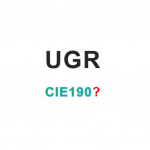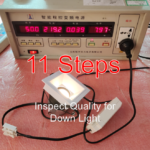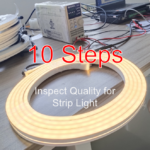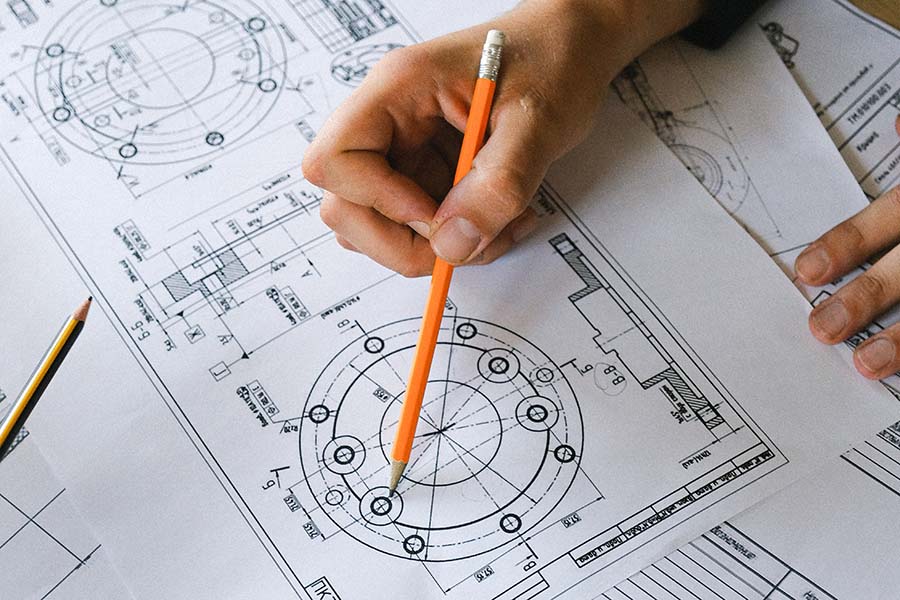Getting a reliable quality inspector that you can trust is probably one of the most important factors in successful overseas sourcing.
The supplier quality management industry is full of great companies, but there are also many bad actors.
If you don’t have a good quality inspection partner, then it is likely that your products may not meet your expectations.
Or the product may have issues after arriving in the hands of users, costing you valuable time and money.
This is particularly true for some products that require fundamental technical understanding and experience.
This post will tell you 6 tips that are proven to be useful in finding reliable quality inspectors in China.
And it’s particularly helpful if you happen to be in the LED lighting industry.
Now let me show you the 6 tips one by one.
1. The prices can’t be expensive, but definitely not cheap.
There are two popular types of service prices.
Firstly, the most preferred one is billed by man day.
The most reasonable price by man day for most professional quality inspectors is $200 – $500.
If you request due diligence for the manufacturer, you will need an auditor.
The price for the auditor will be more expensive.
This is because the requirements of auditors are higher than the inspectors.
Secondly, the other type is billed on a monthly salary basis.
This is more cost-effective for purchasers who have frequent shipments.
The fees are to be negotiated based on what is included in the quality inspection.
Generally, the services can be customized based on long-term cooperation.
Be careful:
- Some tests charge only RMB500 per man day, which is about $80.
- This is financially illogical.
This quoted price is lower than the total amount of “Labor costs + transportation costs + operation costs”.
Under such price competition, the inspectors will seek other ways to make profits.
2. Don’t limit your inspection to visuals, quantity, and labels.
Take LED lights as an example.
You require your inspector to count the quantities, check the labels, and check the packages.
Or, also do safety tests.
These fundamental tasks are very helpful.
But they are far from enough for the buyers to avoid quality issues.
LED lights require several critical parameters to determine whether the quality is good or bad.
Such parameters include spectrum, light distribution, electrical performance, and EMI.
And include waterproof, tension, installation size, aging, etc.
You should definitely check these parameters to make sure they work properly.
3. Choose quality inspectors with optimum experience with your products
Different products have different features and manufacturing techniques.
And the criteria and methods for evaluating their quality can be very different.
So, work with inspectors who have a good understanding of the key parameters of your products.
Your quality inspector must be familiar with the applicable test instruments and operating standards.
And all of these can’t be learned in a short time.
Even you work with a professional quality engineer from a great company like Apple.
It can be difficult to fulfill the task of inspecting rice cookers and electric fans.
Take LED lights as an example.
- There are two types of test devices for examining the critical parameter LUMEN/WATT.
- They are – Integrating Sphere and Goniophotometer.
Only the well-trained quality inspectors in the LED light industry know how to correctly choose.
And they also must have a good understanding of warm-up time, lights’ installation orientation and instrument calibration.
4. Predefine inspection tasks clearly
You need to know the price, but also need to know what tasks are included in the inspection.
Let’s take LED lights as an example again.
The prices are different, depending on whether the waterproof test is included.
This is because the waterproof test is very time-consuming.
And requires a good understanding of the practices of waterproof tests.
Similarly, there are other professional tests like spectrum, light distribution, etc.
They also require your inspectors to have basic understanding of these parameters and test instruments.
5. Check internal management of an inspection company
Actually, an inspection company is also a factory.
The product of this factory is quality inspection data.
To ensure that the data is true and reliable, check the data production and management processes.
Therefore, pay attention to their internal management processes.
Below are 2 aspects that are worth checking.
Training:
- Do they provide professional training for inspectors?
- Do they have testing instruments to train employees?
Experience:
- Is there a benchmark customer in the industry using their services?
- This is very important.
- A benchmark customer will help them train their inspectors sufficiently.
6. Pay attention to the proper management of inspectors
As mentioned above, technical skills and experience are important.
An inspector’s business ethics is very critical for quality assurance too.
Some manufacturers may find ways to pay inspectors for loosening quality standards.
So, you need to check whether the inspection company has cross-inspection for the quality inspectors.
That means sending different inspectors to the same supplier.
Is there any measure for preventing dishonest behaviors of their inspectors?
No need to worry too much about this.
If internal management measures are properly applied, the chances of misconduct are low.
A typical example is China 10 years ago.
The small package shipping business just began growing quickly.
There are often issues like stealing packages or switching them.
But those courier companies keep optimizing their internal management.
Now those issues almost don’t exist anymore.
7. Verify data from third-party inspectors
One of our customers has a lab of their own for LED lights.
And they also work with BackMorning for testing their LED lights.
Their quality engineers will also pick random samples from their warehouse to check.
Then they compare their test results with BackMorning’s.
This is a very good practice to make sure the data is reliable.
It doesn’t mean “no trust”.
It helps us manage the quality of the inspection data with an extra step.
It’s good for the long-term cooperation among the buyer, the factory, and the third-party inspection company.
Last but not least, we’ve told you 6 practical tips for working with reliable quality inspectors in China.
If you happen to be looking for someone to take care of LED lights that you buy from China, consider BackMorning.
We focus on the inspection in the LED light industry since the beginning.
And now we’ve been working with some of the top-notch companies.
Won’t let you down.
Related posts:
 UGR Test according to CIE 190:2010 for a French Customer
UGR Test according to CIE 190:2010 for a French Customer
 Two Tips for Buying Good Quality LED Lights
Two Tips for Buying Good Quality LED Lights
 Comparing LED Streetlights with Different IK Ratings
Comparing LED Streetlights with Different IK Ratings
 12 Steps to Inspect LED Linear Lights before Shipment
12 Steps to Inspect LED Linear Lights before Shipment
 11 Steps to Inspect LED Down Lights before Shipment
11 Steps to Inspect LED Down Lights before Shipment
 10 Steps to Inspect LED Strip Lights before Shipment
10 Steps to Inspect LED Strip Lights before Shipment

